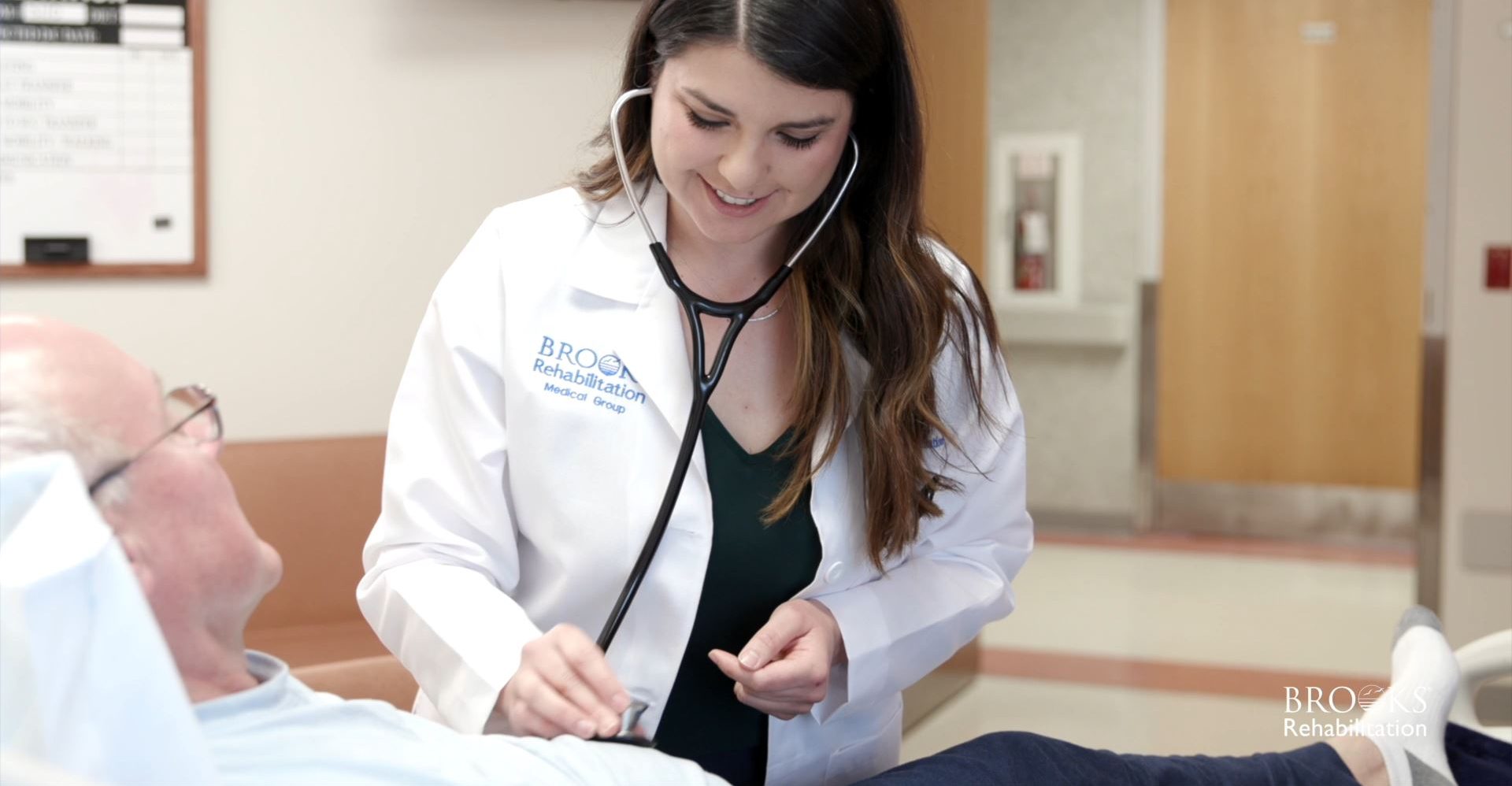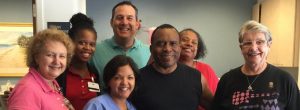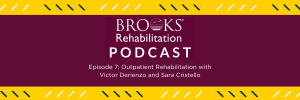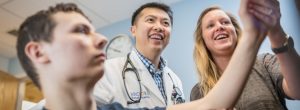VIDEO: Left Brain Stroke vs. Right Brain Stroke

Back to physical health resource hub
Video Transcript
Hi, I’m Dr. List, and I am a physical medicine and rehabilitation doctor. I am the medical director for the Stroke Program here at Brooks. I’m also the medical lead for the Spasticity Management Program.
Though we see general patterns in stroke based on the area of the brain that is affected, every stroke and how it affects someone can vary. I get asked a lot about the size of the stroke and how it impacts a patient’s prognosis, rehabilitation and recovery. Though the size of the stroke certainly can influence recovery, a small stroke in a critical area of the brain can also cause a lot of damage. So it is important for us to take an individualized approach to each and every patient in their stroke rehabilitation.
Generally speaking, a stroke on one side of the brain will cause weakness on the opposite side of the body.
With strokes to the right side of the brain, we can develop weakness on the left side of the body. We may also develop changes in how we think, act and process information. In general, when the left side of the brain is affected, we can develop weakness on the right side of the body. And often, our language ability may also be affected. And we could develop what is called aphasia, which is when we either lose the ability to speak, we lose the ability to understand speech or both.
What is great about the Brooks Stroke Rehabilitation Program is that we work together as a team to develop a rehabilitation program specific to the patient, wherever they are in their stroke recovery. I came to Brooks probably a year and a half to two years ago, and I was very happily overwhelmed with just the various resources that Brooks offers to their patients, both from the inpatient perspective all the way to the outpatient, and long-term recovery.
As a stroke rehabilitation physician, there’s a lot that I can offer my patients in terms of helping them along through their recovery. So maybe it’s when you first come to Brooks Rehabilitation on the inpatient side and you’re working with a very specialized team of neuro rehabilitation from your physicians to the nurses to the therapist who are sub-specialized in neuro rehabilitation, and really know how to help you along your journey to recover from the inside out.
Some of the resources are things like the Brain Injury Day Treatment Program, getting you back to driving through our Brooks Rehabilitation Drivers Program, talking about getting back to work or seeing work in a new way, by working with our vocational rehab specialists in the Brooks Brain Injury Clubhouse, perhaps your speech was significantly affected after the stroke and we get you involved in the Aphasia Center, or you want to get involved in our Adaptive Sports Program, which is so great. Or you just want to maintain your general fitness and we get you involved in our Brooks YMCA Stroke Wellness Program.
Really the options and the resources that Brooks has for your recovery are endless.


